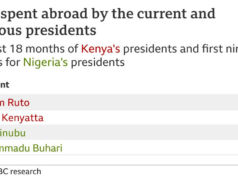Education of about 54.9 percent of Sri Lankan students has been affected by the economic crisis since March 2022, the latest Household Survey on Impact of Economic Crisis – 2023 by the Department of Census and Statistics reveals.
Out of the respondents surveyed 93.5 percent have adopted at least one strategy to counter the impact of the economic crisis on schooling. The primary strategy adopted by the majority of individuals affected by the economic crisis (53.2 percent) was to reduce their expenditure on new stationery. 44.0 percent of individuals have cut down on buying new uniforms or stopped purchasing them altogether. Reducing the frequency of attending private tuition classes or shifting to online classes, too, is a commonly adopted strategy with 40.6 percent and 28.1 percent of respondents opting for those measures, respectively.
60.5 percent of households have experienced a drop in their total household average monthly income. Nearly half of the employed individuals have encountered changes in their main jobs due to the economic crisis. 47.3 percent experienced work breaks or temporary absence. 48 and 45.8 percent of respondents experienced reductions in working hours or cuts in pay or allowances and income loss, respectively.
14.2 percent of individuals engaged in economic activities faced job loss due to the impact of the economic crisis. Higher percentage of males (18.4 percent) who lost either their primary or secondary jobs due to the economic crisis compared to females (8.3 percent). 60.5 percent of income earners reported a decrease in at least one income source. 36.6 percent said there was no change in income during the crisis. Income has increased only for 3.4 percent of income earners.
60.5 percent of households experienced a decrease in their total income. Only 5.4 percent of families reported an increase in income. 48.7 percent said it was due to reduced working hours, 31.7 percent put this down to decrease in customer attendance. 22.9, 19, 16.5 and 15.1 percent of households experienced a decrease in come due to job loss, had to resign / temporarily suspended; increase in prices of seeds, animal feed, fuel, fertilisers; depreciation of seeds, animal feed, fuel, fertilisers etc., and because product could not be sold as per usual, respectively. 8.4 percent of families also reported problems in hiring workers, tools, and equipment. 73.6 households have ‘done nothing’ to adopt for the impact of the economic crisis on household income, the survey found.
Meanwhile, 91.1 percent of households indicated that their expenditure had increased. 99.1 percent of respondents said this was due to the increase in food expenses. Transport (83 percent), health expenses (73.2 percent) and educational expenses (51.8 percent) too had increased.
Approximately 97.2% of households employed at least one coping strategy to manage their household expenditure. 75.2 percent reported a change in diet, while 46.4 percent reported reduced savings or spending their savings. 21.3 percent of respondents have taken loans, sold or mortgaged properties.








